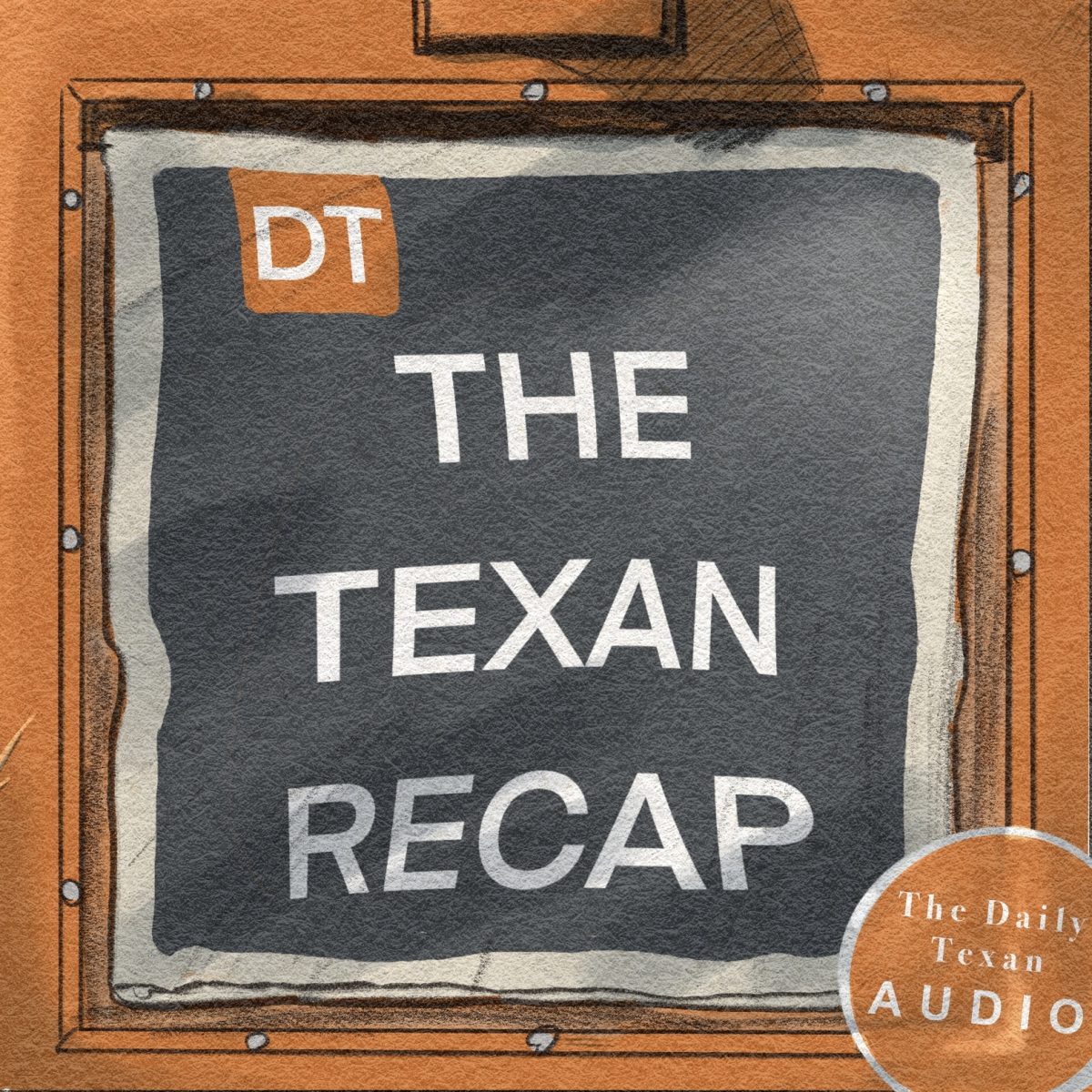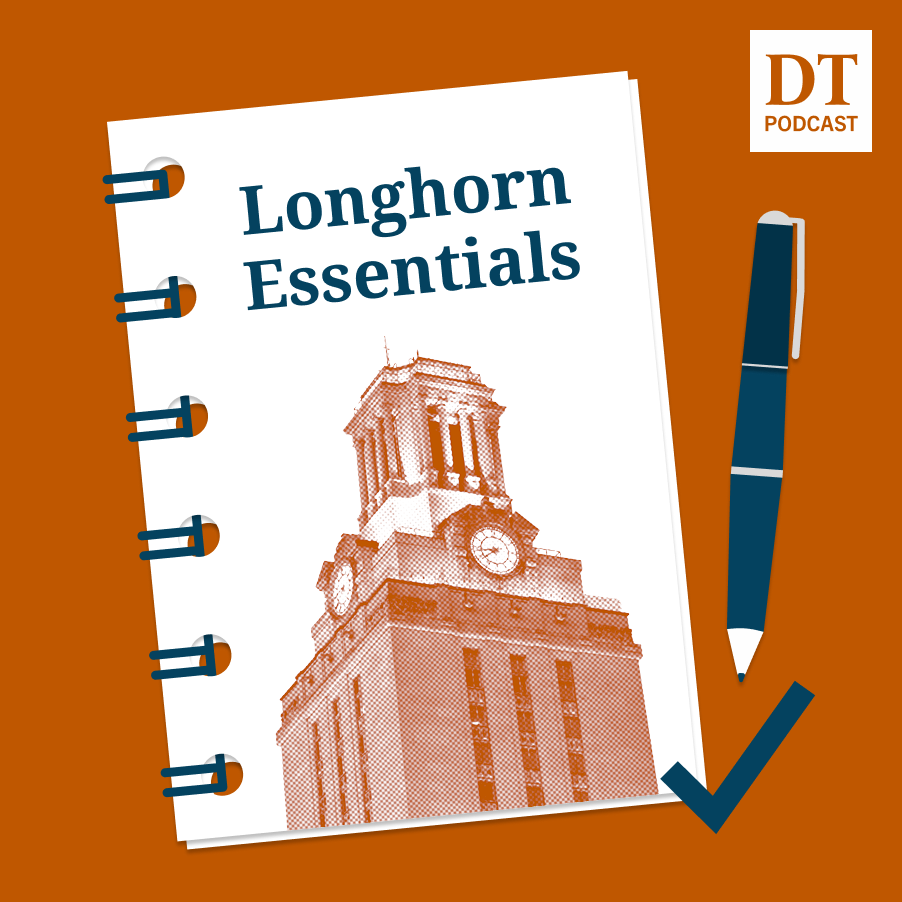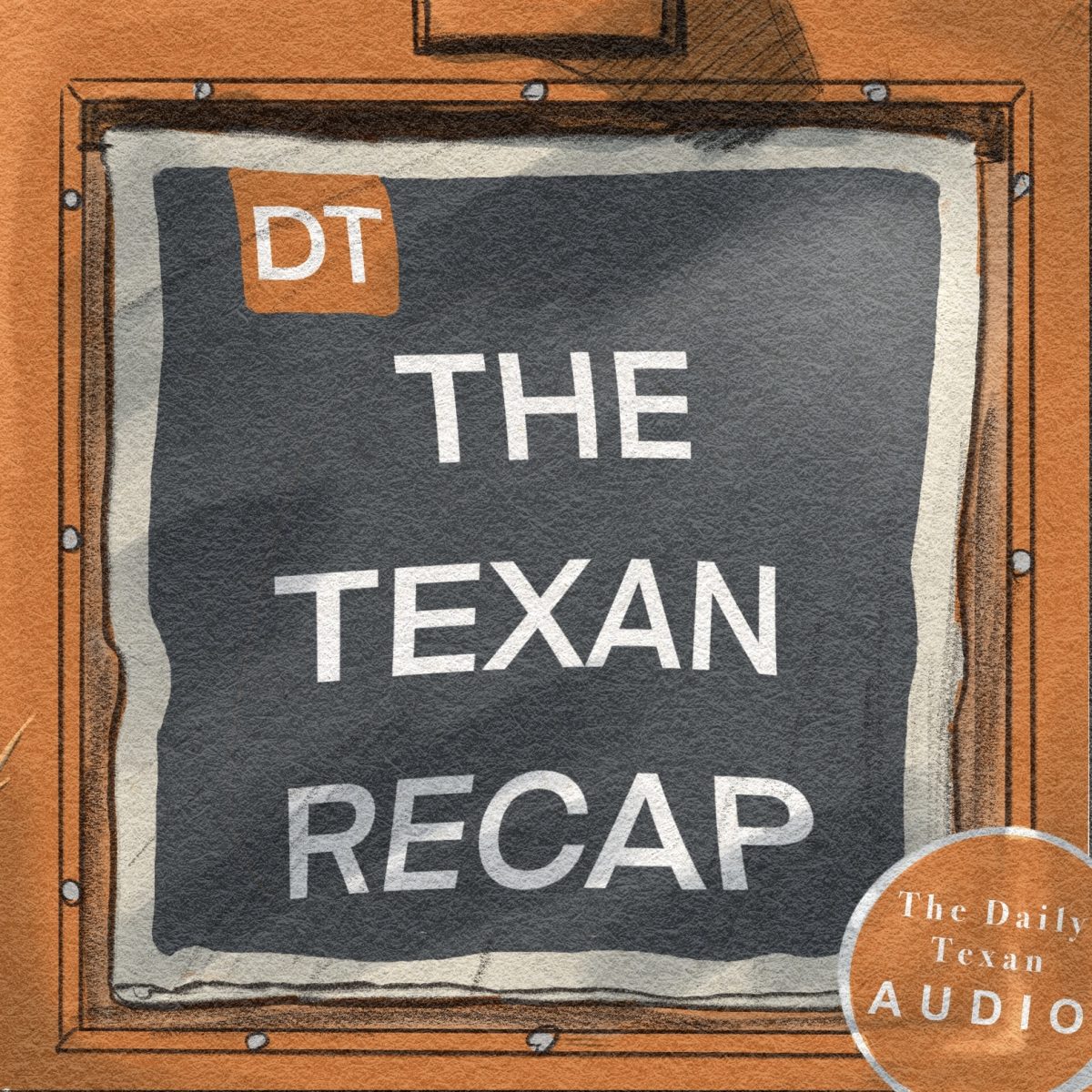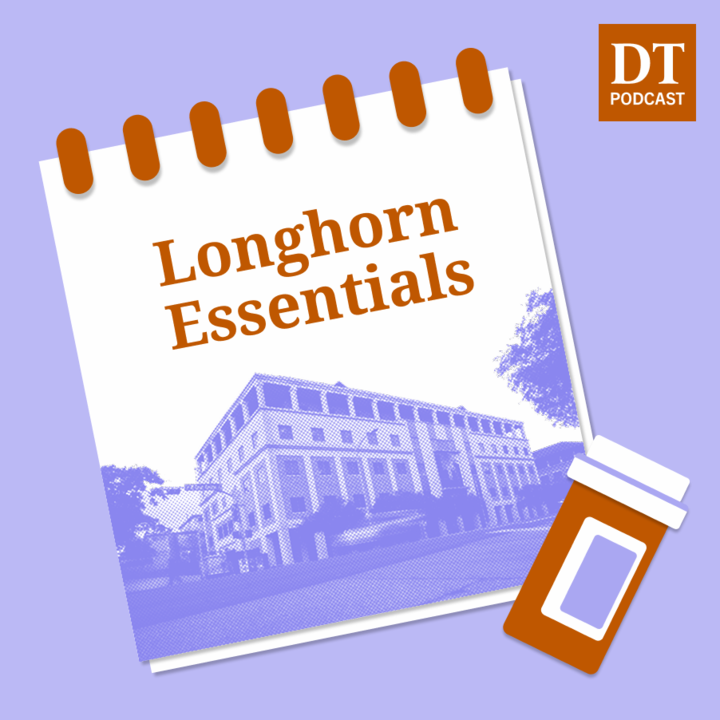Jake Gripp: The Texas legislature is about to start, and UT students share their legislative priorities. I’m your host this week, Jake Gripp, and this is Texan Recap. Texas’s 89th regular legislative session is allowed to pass new bills on March 14th. Texan reporters, Catherine Li and Isaiah Williams, asked UT students what their legislative priorities were.
Here’s Catherine Li with their part of the story.
Catharine Li: I am a senior news reporter from the Daily Texan.
Gripp: Awesome. All right. Thank you so much for joining me today. I really appreciate that.
Li: Yeah, of course. Happy to be here.
Gripp: So this story reports on the legislative session that’s coming up, and I was wondering what made y’all choose to report on a legislative session?
Li: So Isaiah, his primary focus as a reporter is to cover legislative and city issues, and for me, I focus on environmental and public safety, so we were really interested in some sort of collaboration that kind of melded the two of these beats and specifically, we wanted to really hone in on trying to figure out how to communicate different policy areas in a way that is relevant to students.
So, we thought about, you know, how best to assess what students care about, what is on the top of their minds in terms of what they wish their policymakers or legislators would be working on on their behalf. And so we settled on a survey where we went out and we interviewed a hundred, more than a hundred different students on campus.
We got a really good sense of what students find to be important and also really added to our perspective while reporting.
Gripp: I noticed that survey. What is the process of creating that survey like?
Li: Yeah, so we opted to do cold interviews as opposed to sending out a digital survey and so with this cold interviewing, we were able to not only reach, I would say, a wider and more robust portion of the student body, but we were really able to speak with students who are willing to expand on certain areas.
So, we asked them to rank a list of 5 priority areas and the priority areas were education, health policy, public safety, affordability and the environment and so, initially, the students were asked to rank them one through five, one being their most important and five being their least important. And alongside their answers, many of them shared different perspectives that they had about why they put certain policy areas above others.
What we found with our survey was that about 34 percent of people found education to be their top priority, and many of these students had said that they recognize the kind of privilege that they had to be here at UT and to have access to higher education, but they also wished that that access was more readily available for everyone.
Gripp: Did you notice any other trends while interviewing those students?
Li: Yeah, so education across the board was the top priority that students identified. On the very bottom was environment. And this was interesting because some students definitely had some level of engagement with some of the different issues that are facing our state in terms of energy and water infrastructure.
But generally speaking, that was not a priority for students. Secondly, we had health policy, I believe. And then thirdly, public safety. Yes, but you have to check me on that. I think students, when put on the spot, were really, I don’t want to say forced, but really put in a position to think about issues that were most immediately important to them.
So seeing their thought process and seeing how they reasoned through it was really fascinating. And so this is something we tried to incorporate throughout the narrative and our reporting, considering that, of course, if you were asked the question, “how would you rank these priorities?’ It would also probably be a very hard task to do.
Generally speaking, it may not be the most productive assessment of what students find important, but when we looked at generally the 100 people that we surveyed, we found that It was a good starting point for our conversations about, you know, how we would group policies together, how we would analyze policies that affect students beyond just policies directly related to higher education.
Gripp: You said it took some effort to get answers out of the students. I’m just wondering, do you think that students have the legislative agenda at the front of their mind, or do you think they’re thinking about it?
Li: That’s a good question. I, there are certainly students that do have this at the front of their minds, and some that don’t have it, but I believe just being able to have that conversation and discourse about this, even if it’s just about simply the question of what matters to you as a student, what affects your day to day life, what affects your quality of life, what issues do you feel, you know, that people in power should be addressing?
It was a very good experience.
Gripp: What part of the story do you find the most interesting?
Li: I would say, we spoke to a student, her name was Kinsey Faltysek and she’s a senior sociology major who shared some of the challenges that she’s facing in terms of being able to keep up with the rising cost of living and she spoke about balancing classes, balancing extracurriculars, also working an extra job outside of this, and, still barely making it by in her words.
And this was, of course, not a, sadly, not an uncommon story, her perspective on this was particularly valuable because she situated it in this greater context of, you know, while the state has pursued measures to address the rising cost of tuition via the tuition freeze that was enacted in November of 2024, this still wasn’t enough for her and that there are still a lot of external factors that, despite working a job, she can’t really account for as well as she would help for.
I think that was interesting because she was very much candid about her experiences. And she kind of also spoke about how her perspective as a sociology major certainly shaped her thoughts and her stance on this issue. But also that she wanted to have this conversation with us. And some students, more than others, expressed interest in being able to share their concerns about this.
And were actually really interested in telling us what they cared about. So there was definitely great interest there.
Gripp: Definitely. I just have one final question for you. And that’s if people were to take away, like, one thing from this story, what would you want them to take away?
Li: So, the intent of our reporting was to understand on this great campus of ours, so many students, so many interests, perspectives, interests, values, what are things that stand out to them?
Even if you don’t follow policy matters on a day to day basis, even if the legislature is not something of interest to you, we still found very important anecdotes, perspectives. So, yeah, know that you have a voice and know that your perspective matters in the grand scheme.
Gripp: Definitely. Yeah. Yeah, that’s all I, all the questions I have for you.
I just want to thank you so much for joining me today.
Li: Thank you.
Gripp: To continue on this story, senior news reporter Isaiah Williams tells us more.
Isaiah Williams: Hi, I am Isaiah Williams. I am a senior news reporter for city politics and the legislature.
Gripp: So what originally made you want to cover this upcoming legislative session?
Williams: Well, we know that the Daily Texan always covers the legislature whenever it is in session. Of course, that only happens every two years, so every time that comes up for the first about six months of every odd number year, the Daily Texan is always going to assign one person to the legislature. That’s always been one of my interests.
I like to read the bills. I like to read the laws.
Gripp: Did working with Catherine impact this at all, and how was it working with her?
Williams: Working with Catherine was a big help. We originally set out to interview over 100 people, and we ended up interviewing over 100 people cause Catherine came on and helped. That’s just a feat that would’ve been impossible to do by myself and having her there just made it so much better.
Gripp: I was just talking about that with her, the interviewing over, like, cold interviewing over 100 students is really impressive. But I’m wondering sort of what was collecting data like that, like, like, how did you go about that?
Williams: Well, it’s interesting because normally when we do a cold interview, reporters don’t have all of the structure of a question finished, right?
We go up to somebody, we ask them maybe one prepared question, and we ask them a few more clarifying questions. With this one, it was almost all prepared because we were putting together… What was essentially a poll, and so it was very interesting because it both changed the way that our on the street reporting is done.
Gripp: What was the most interesting, or what do you find the most interesting coming out of these cold interviews?
Williams: Well, there are some fantastic quotes, some even that won’t appear in the article, like one of my favorites had to be this one guy talking about why he valued public safety so much and he was like, it’s because I’m a humanitarian and that was hilarious.
Like, you will hear it if you ever hear the recording that Catherine and I get of these cold interviews is that some of these students come up with the funniest things that we just can’t print because they’re, they’re one liners or because they’re not as, I don’t quite know how to phrase it, but not as professional jokes.
And so it’s always fun hearing what the students think about what is our topic.
Gripp: Taking a look at this story as a whole, what part did you find the most interesting, personally?
Williams: I think it was just meeting students where they work. Oftentimes as a journalist, we bring students to us, right? We bring them into an interview and you kind of get this version of them that they are hoping to impart on the world.
With this one, I mean, we surprised them. We got to hear their natural thoughts, and that was a lot of fun because as much as I love the interviews that I get from students when they’re trying to impart something on me, I mean, I just love hearing their natural thoughts, like what they’re thinking on an everyday basis.
It was just so interesting to hear how articulate and in depth some of the students were. And even some who didn’t really know, like you could hear their minds. It’s formulating the answers to the questions as we were asking them.
Gripp: So I don’t know exactly a whole lot about the legislature, but I found it interesting that they can only work after the 60th day, which would be March 14th.
Could you dive a little bit more into that and just sort of how it affects legislative decisions, if at all?
Williams: Oh, yeah. So the Texas legislature and the Texas constitution are weird, right? They are oddballs across the United States. For one thing, the Texas legislative regular session can only, according to the constitution, be up to 140 days.
And so this means that whereas some legislatures across the nation are meeting for the entirety of the two year cycle, right, the entirety of the 25-26 cycle, our Texas legislature is only going to need from about mid January to the beginning of June. And once that is over, they can’t pass any more laws unless they go into a special session.
Now, another interesting facet of the legislature is the fact that there are specific days before which they’re not allowed to pass legislation. So, before the 30th day, they’re not allowed to pass bills from what’s called “committee.” And those are smaller subsections of the legislature who pass bills based on topics and they refer these bills to the full floor of a specific chamber so that they can be passed by that entire chamber.
So before the 30th day, none of the committees can pass the bills. And then before the 60th day, the full House or the full Senate Cannot pass bills that are not deemed emergency items by the governor.
Gripp: If you want a reader to take away one thing from this story after reading it, what would that be?
Williams: That’s an interesting question. Here, I’ll take, I’ll take a quick second and think about that.
Gripp: Take as much time as you need.
Williams: If I could have readers take away one thing from my legislative coverage, and I’m going even beyond just the survey that I did, even to all of my legislative coverage, I would say that…
I would want people to take away that issues in politics are complicated, and personal, and messy. And when I say that, I don’t want to say that you shouldn’t have your own beliefs, or that you shouldn’t fight for those beliefs, or that you shouldn’t articulate those beliefs to other people. What I do want to show with my legislative coverage is that everybody has something weird and different going on.
There’s no one size fits all when it comes to politics, and really, especially Texas legislative politics, there’s really no rhyme or reason to what goes on. As much as we would like to, to put some sort of reasoning or some sort of spin on it, in reality, it’s just personalities doing things. And so, I would ask people to keep that in mind when they’re reading about Texas politics or when they’re reading about any politics.
Gripp: What a perfect way to sum it up. I just want to say, thank you so much for joining me today.
Williams: Thank you for having me.
Gripp: And that’s the Texan Recap for the week of March 3rd. I’m Jake Gripp. The Texan Recap is a production of the Daily Texan Audio Department. If you liked this episode, make sure to subscribe to the Daily Texan on your streaming platform of choice, and to follow us on Twitter.
At Texan Audio. This episode was hosted and edited by me, Jake Gripp. Special thanks to Catherine Li and Isaiah Williams for the reporting. Cover art is by Emma Burke and music is by Top Flow Productions. To read the news stories in this episode or see more from The Texan, head on over to www.thedailytexan. com. Thanks for listening, and I’ll see you next week.











